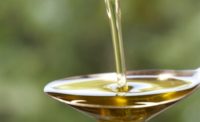Fats & Oils Influence Consumer Packaged Food Choices
New research finds that consumers monitor fats and oils in packaged foods at a rate that has remained steady since 2013

Much has changed in consumers’ buying behaviors regarding foods, but their attention to the fats and oils in the packaged foods they purchase remains consistent, according to Cargill’s most recent FATitudes™ survey, conducted during the COVID-19 pandemic. The research found 53% of American consumers closely monitor fats and oils in packaged foods, a rate that has remained relatively steady since 2013 when Cargill first began conducting the annual study.
Cargill conducts the proprietary research annually to track consumers’ awareness, perceptions and behaviors around fats and oils found in packaged food. The 2020 study moved to a US consumer focus, unlike the 2019 global consumer focus, surveying 560 primary grocery shoppers in May 2020.
Key research findings
One notable change from past surveys is shoppers’ interest in sustainability claims. In 2020, 37% of consumers surveyed said they are more likely to purchase a packaged food product with a sustainability claim, a jump of 6% when compared to 2019 results for US consumers. Those claims resonate most strongly with Gen Z and millennial shoppers, with 45% of Gen Z and 42% of millennials saying they are more likely to purchase a product with a sustainability claim. In comparison, just 32% of baby boomers said sustainability claims strongly influenced their purchase decisions.
As in past surveys, Cargill found consumers track fats and oils by closely reading labels on packaged food and what they learn helps guide their purchasing decisions. A ‘no saturated fat’ claim is the most influential, with 53% of consumers in 2020 saying they are more likely to purchase these products. That exceeds other label claims, including ‘non-genetically modified (GMO)’ and ‘organic’, prime considerations with four in ten consumers (44% and 43%, respectively).
The type of oil and fat used in packaged foods also weighs on shopping decisions. Cargill’s 2020 research revealed that the top five oils with the highest impact on packaged food purchases are olive oil (50%), avocado oil (36%), coconut oil (30%), fish oil (28%) and sunflower oil (25%). This marks a move up in the rankings for sunflower oil, which landed in the sixth slot in the 2019 survey.
Looking for a reprint of this article?
From high-res PDFs to custom plaques, order your copy today!






